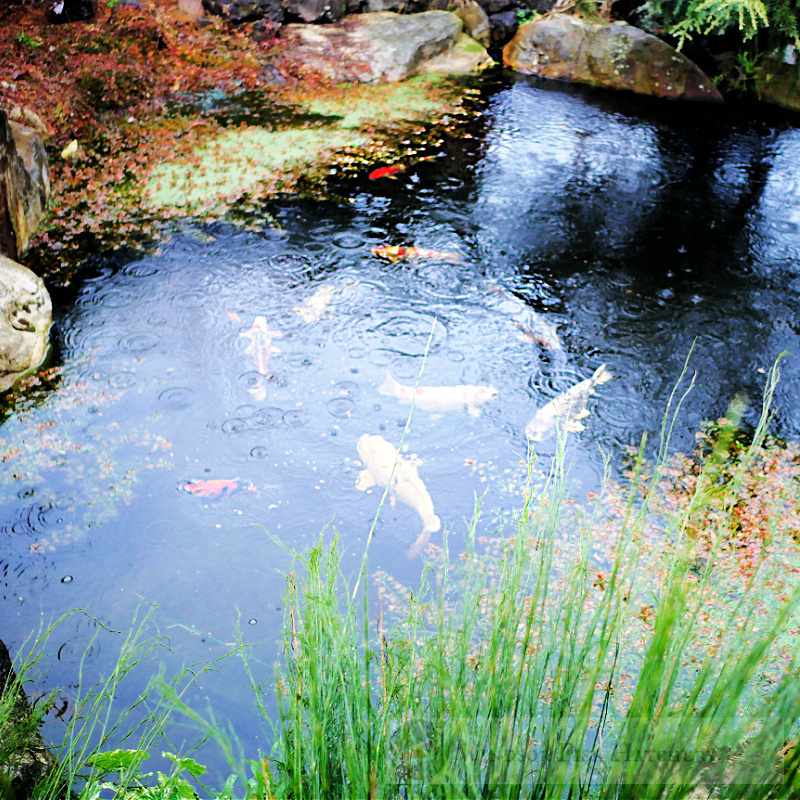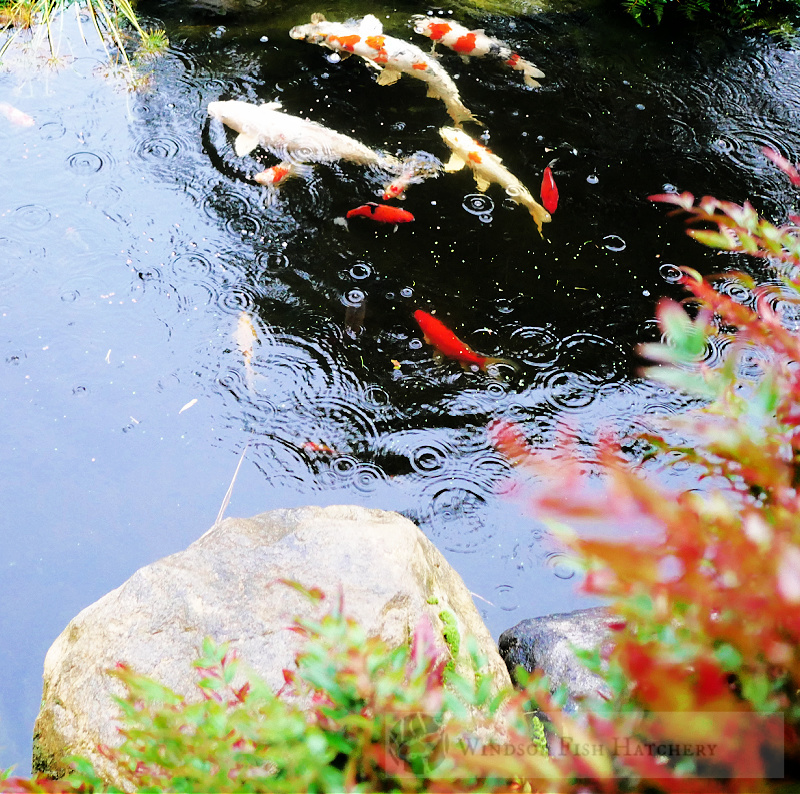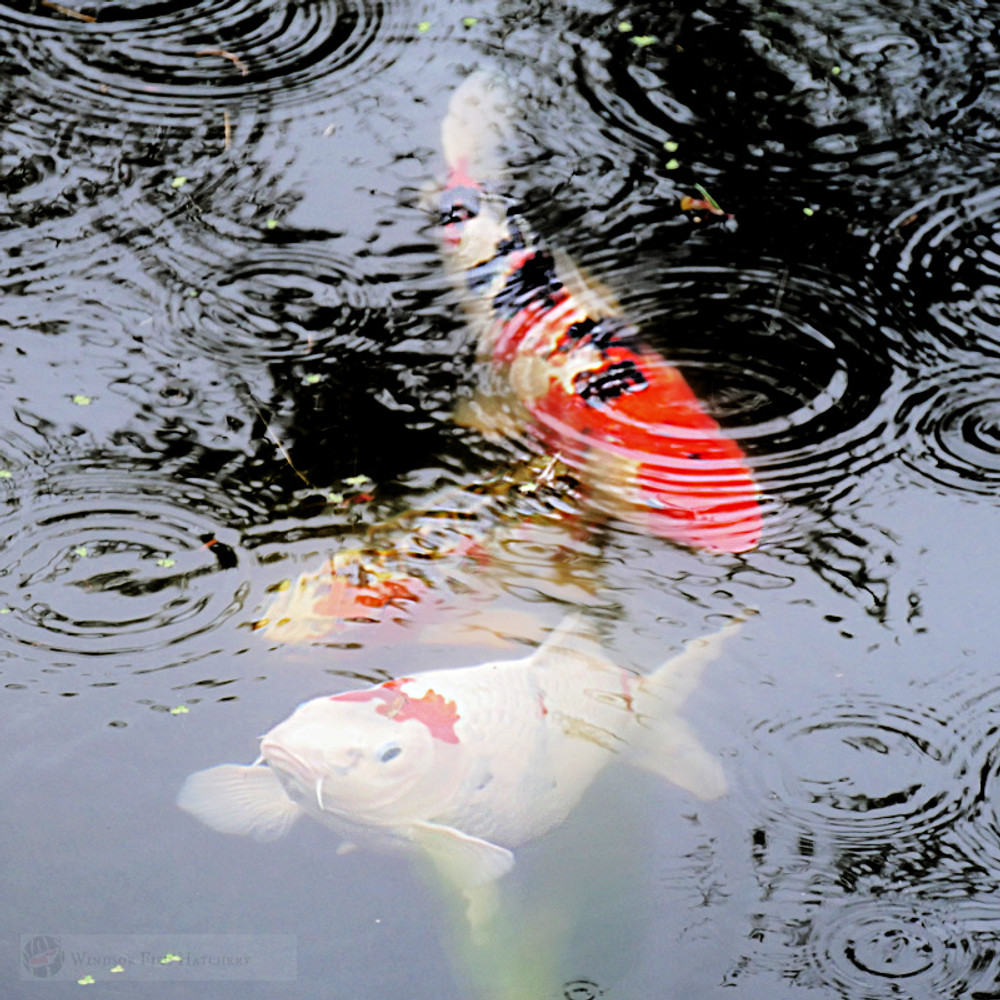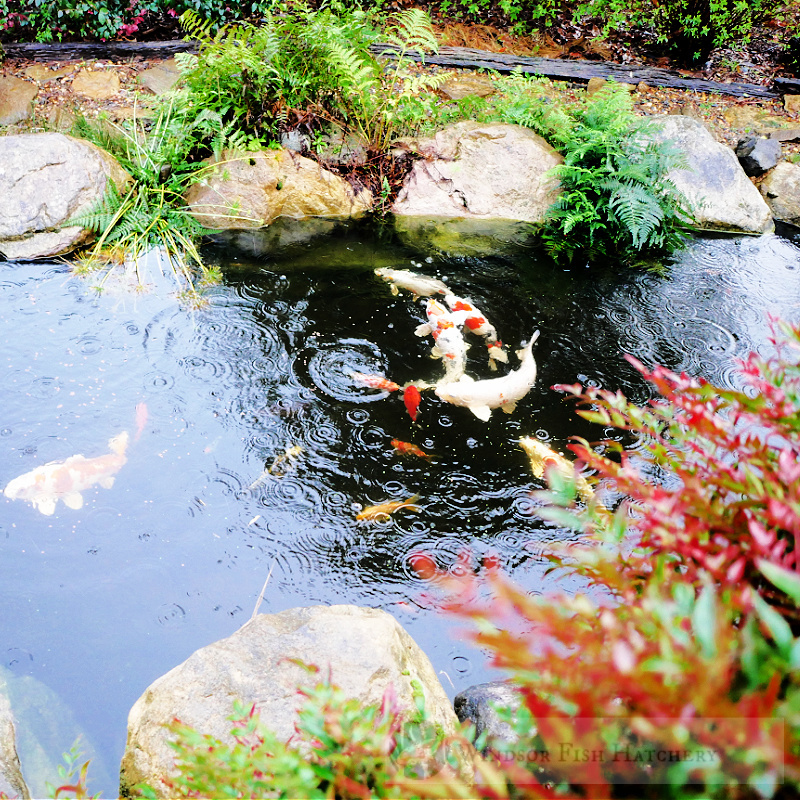Why You Should Check pH After Rain
Rainwater is naturally acidic — usually with a pH around 5.5 to 6.5. When it enters your pond, it can lower the overall pH, especially if your pond has low KH (carbonate hardness), which acts as a buffer.
How pH Affects Oxygen in Your Pond
-
pH doesn't directly create or remove oxygen, but it affects how available oxygen is to your koi.
-
When pH drops below 7, especially below 6.5, it becomes harder for fish to absorb oxygen through their gills.
-
This can be dangerous — especially for large koi, which need more oxygen.
Why Nighttime Makes It Worse
-
At night, plants and algae stop photosynthesizing (no sunlight), so they stop producing oxygen.
-
Instead, they consume oxygen — just like your fish do.
-
So now you have:
-
Less oxygen is being made
-
More oxygen is being used
-
And low pH makes it harder to absorb oxygen
-
This combination is what can suffocate your largest koi overnight, especially if pH drops after rain (acid water).
What You Should Do?
-
Test pH after every heavy rain, especially if your pond isn’t well-buffered.
-
Keep your KH levels up — use crushed coral, baking soda, or commercial KH buffers to maintain stability.
-
Aim for a pH between 7.6 to 7.8, and never let it swing suddenly.
-
Ensure good aeration at night with air stones or waterfalls — this helps maintain oxygen even when plants stop producing it.

pH, Rain, and Oxygen
After Rain
-
Rain lowers pond pH — especially dangerous if KH (buffering) is low.
-
Check pH daily after rain — use a reliable test kit.
-
Keep KH levels stable (90–150 ppm) to prevent pH swings.
⚠️ Why Low pH Is Dangerous
-
Fish struggle to breathe, even if oxygen is technically present.
What Happens at Night
-
No sunlight = plants and algae stop producing oxygen.
-
Everything in the pond uses oxygen, including koi and bacteria.
-
Low pH + low oxygen = danger zone for large or sensitive fish.

Tip:
If your pond has green water or lots of algae, it may produce oxygen during the day but steal it back at night — causing overnight oxygen crashes when paired with low pH.
pH below 7 reduces oxygen availability to fish, add in warm water, it's a disaster waiting to happen
-


